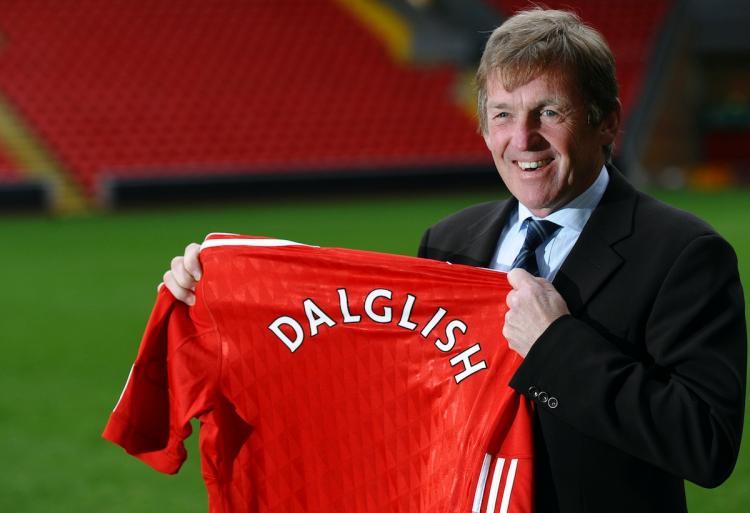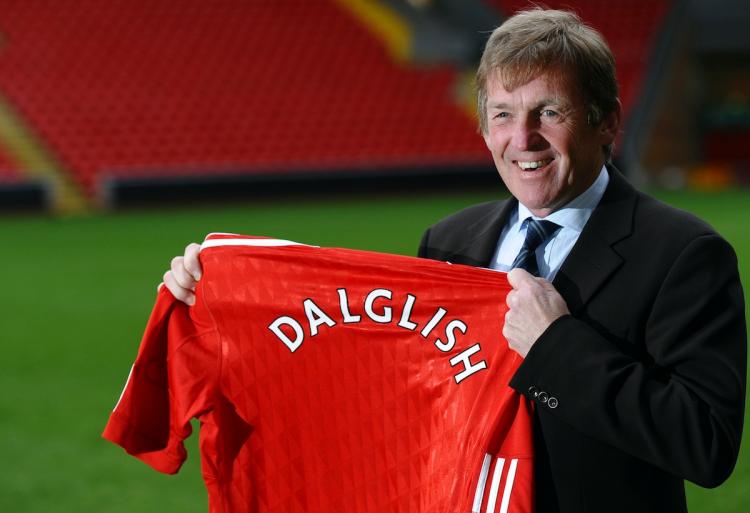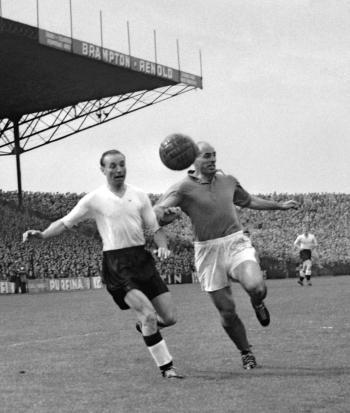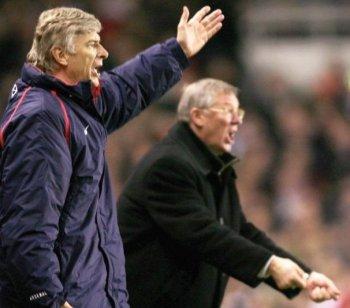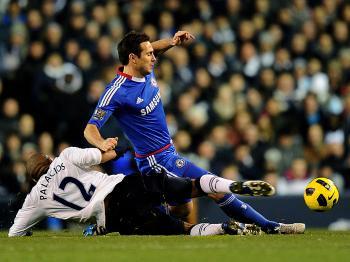With the sobering exit of Liverpool manager Roy Hodgson, fired by American owners after a tortured six months in charge, the long awaited return of Kenny Dalglish carries a rush of expectancy that’s somehow hushed with make believe among the long deluded fan base known as the Kop.
Dalglish, an Anfield icon and former manager, and generally regarded as their greatest player ever, came home after a 20-year absence. He was appointed the club’s first player/manager in 1985 at the age of 34.
His reign covered six successful years before resigning in 1991 due to health reasons, having made 515 appearances and scoring 172 goals. He was further decorated with a bevy of League titles, European Cups, and other silverware.
Hence, “King Kenny” was attributed royal status by the football proletariat of Liverpool.
Not since being relegated back in 1953–1954 has Liverpool experienced such a period of remorseless failure, to return to the First Division (now the Premier League) in 1962.
Under manager Bill Shankly, who formed what was known as the “boot room team,” discussing strategy was done with future managers Bob Paisley and Joe Fagan. Then, following up with Dalglish further cemented the policy of manager appointments being kept within the family. This also maintained the club’s strong community links.
Under foreign managers, Liverpool somehow lost its sense of direction and style of play, which was based in the apparently simple but effective pass and move that had brought tremendous success. Foreign managers imported foreign players that served to loosen the link with the community, again giving the impression that Liverpool Football Club was somehow misplaced in contrast to its former close identity with the players.
Foreign names could not be readily assimilated, and did not quite sit well within the distinct Liverpool culture and its past home-grown heroes.
It has to be acknowledged however that French manager Gerard Houllier had a good run with five trophies gained in 2000–2001 with a third-place league finish. Spanish manager Rafael Benitez brought the European Cup (Champions League) back to Anfield in 2005 and the FA Cup a year later.
Each served a period of approximately six years in charge, and both left the club disillusioned with the players and fans. Since the departure of Dalglish, the “son” of (Shankly and Paisley) in 1991, there has always been the long-term feeling beneath the surface that Liverpool had never been the same club.
Now some 10 years since his last management appointment with Glasgow Celtic and a few weeks from his 60th birthday, Dalglish, some claim, has been out of the game for too long, but his heart belongs to Liverpool without question, and the fans know it.
Can he enliven and generate that spirit of pass and move, putting the drive back into the club that will see a steady climb up the League table and once again become the dominant force that was admired throughout the world of football?
His arrival at Old Trafford last Sunday for the FA Cup match saw him greeted with the almost reverent calling of his name Dal-glish, his broad smile, and raising of the arms in appreciation hinted at better times to come.
Those better times were not immediately realized when Manchester United were awarded a hotly disputed penalty after only 31 seconds into the game, and then the team’s driving force captain Steven Gerrard was dismissed given a red card after 31 minutes.
To lose at Old Trafford by a one-goal margin reduced to 10 men carried no disgrace, and the Liverpool fans knew that most certainly things had changed, the King had returned.
Dalglish, an Anfield icon and former manager, and generally regarded as their greatest player ever, came home after a 20-year absence. He was appointed the club’s first player/manager in 1985 at the age of 34.
His reign covered six successful years before resigning in 1991 due to health reasons, having made 515 appearances and scoring 172 goals. He was further decorated with a bevy of League titles, European Cups, and other silverware.
Hence, “King Kenny” was attributed royal status by the football proletariat of Liverpool.
Not since being relegated back in 1953–1954 has Liverpool experienced such a period of remorseless failure, to return to the First Division (now the Premier League) in 1962.
Under manager Bill Shankly, who formed what was known as the “boot room team,” discussing strategy was done with future managers Bob Paisley and Joe Fagan. Then, following up with Dalglish further cemented the policy of manager appointments being kept within the family. This also maintained the club’s strong community links.
Under foreign managers, Liverpool somehow lost its sense of direction and style of play, which was based in the apparently simple but effective pass and move that had brought tremendous success. Foreign managers imported foreign players that served to loosen the link with the community, again giving the impression that Liverpool Football Club was somehow misplaced in contrast to its former close identity with the players.
Foreign names could not be readily assimilated, and did not quite sit well within the distinct Liverpool culture and its past home-grown heroes.
It has to be acknowledged however that French manager Gerard Houllier had a good run with five trophies gained in 2000–2001 with a third-place league finish. Spanish manager Rafael Benitez brought the European Cup (Champions League) back to Anfield in 2005 and the FA Cup a year later.
Each served a period of approximately six years in charge, and both left the club disillusioned with the players and fans. Since the departure of Dalglish, the “son” of (Shankly and Paisley) in 1991, there has always been the long-term feeling beneath the surface that Liverpool had never been the same club.
Now some 10 years since his last management appointment with Glasgow Celtic and a few weeks from his 60th birthday, Dalglish, some claim, has been out of the game for too long, but his heart belongs to Liverpool without question, and the fans know it.
Can he enliven and generate that spirit of pass and move, putting the drive back into the club that will see a steady climb up the League table and once again become the dominant force that was admired throughout the world of football?
His arrival at Old Trafford last Sunday for the FA Cup match saw him greeted with the almost reverent calling of his name Dal-glish, his broad smile, and raising of the arms in appreciation hinted at better times to come.
Those better times were not immediately realized when Manchester United were awarded a hotly disputed penalty after only 31 seconds into the game, and then the team’s driving force captain Steven Gerrard was dismissed given a red card after 31 minutes.
To lose at Old Trafford by a one-goal margin reduced to 10 men carried no disgrace, and the Liverpool fans knew that most certainly things had changed, the King had returned.
